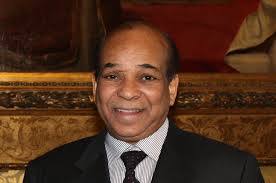“The ‘Democracy’ They Milk from Mirage”

By: Abdulrahman Shalgam
Words crowd in mouths, in newspaper columns, books, television screens, and social media. Words filled with fluid concepts that may delight some speakers, listeners, and readers.
During the years of colonial rule, when some Arab countries bore the weight of foreign occupation, the word “independence” was a fiery storm bursting from the mouths of patriots, met with applause from young and old alike. In the early 1950s, after many nations had gained independence, a new term took root among so-called elites: “Arab nationalism,” which gave birth to a celebratory slogan—Arab unity.
The “radio,” that grand magical box, became an esteemed guest and a pulpit of leadership. The “Voice of the Arabs” radio station, broadcasting from Cairo, painted a map of dreams, embroidered with ambitious hopes through anthems, chants, speeches, and applause. The cry of revolution rose high. However, following military defeats and failed unity projects, dust settled on tongues that had grown thorny with age. The world witnessed enormous transformations in science, technology, thought, and ways of life. Some nations rose, while others fell behind.
Then came the word “development,” entering the lexicon of Arab nations. Minds began drafting maps for a new era, distinguishing between pragmatic efforts for progress and those lost in the jungle of slogans, anthems, and leader-worship.
Words derive their strength from the ever-evolving lexicon of life, shaped by human progress. “Globalization” became a weighty term, charged with active realities spanning economy, movement, culture, and an interconnected human dynamic that transcends borders, forming a deeply intertwined global market. In the Arab world, verbal mobilization surged, with loud voices and slogans warning of a global conspiracy against Arab identity.
“Secularism,” that fiery word, was inhaled like incense by Arab philosophers, thinkers, intellectuals, writers, and journalists. Most of them confined it to a narrow interpretation—”the separation of religion from the state”—as if it were merely a fleeting notion.
Then there is “democracy,” a word whose seed was planted in the distant soil of ancient Greece. Some nations nurtured its branches in the laboratories of their intellect, while others never saw its shadow. Democracy is a system for managing a human collective in a shared space, where all people participate in national decision-making. The word was born in Europe, lived in the minds of its philosophers and thinkers, but was absent from practical life for centuries.
Bloody wars, conflicts between church and science, and economic transformations spanning vast territories shaped European history. The religious reform movement, culminating with Martin Luther in the early 16th century, shattered the closed Christian order. Clerics wielded the rod of sacred dogma to enforce darkness, imprisoning and burning scientists who challenged their rule. Anyone who claimed the Earth revolved was either excommunicated or burned—Copernicus, Galileo, Giordano Bruno, and others. This brutal clash led to an intellectual eruption, propelling a wave of philosophers across Europe.
Religious wars raged between European nations, driven by sectarian ambitions and territorial expansion, culminating in the Peace of Westphalia in 1648. This treaty laid the foundation for the concept of the nation-state.
Jean-Jacques Rousseau’s “Social Contract” was a groundbreaking shift in forming new societies based on agreements between people and rulers—defining rights, governance, and a consensual authority that safeguards everyone’s rights while punishing violators. Education spread, sparking the Enlightenment era, which ushered in industrialization and progress.
Democracy was a European-born child, conceived after centuries of labor and turmoil. Today, some believe they can transplant or import it by mere slogans or dreamy rhetoric. Multiparty systems are a cultural outcome that grew in fertile soil nourished by free thought, yielding social harmony built on managing differences and peaceful power transitions.
We have living examples of both success and failure. India, once the crown jewel of the British Empire, adopted multiparty democracy after independence and embraced a parliamentary system. Meanwhile, Pakistan, founded as an Islamic state, also adopted parliamentarism but experienced multiple military coups, ultimately leading to the secession of Bangladesh. In contrast, India, despite its ethnic and religious diversity, has never had a military coup.
In the United States, power alternates between two major parties, as it does in Britain. The pillars of a pluralistic democratic system are citizenship equality, the rule of law, and freedom of thought and expression.
Nations that face their challenges through prayer, clinging to the dust of their distant past, and celebrating their tribal histories and ancestral glory—without learning how to manage differences—are centuries away from achieving Western-style pluralistic democracy.
China did not import that model. After years of Mao Zedong’s radical experiments, it returned to the wisdom of Confucius and achieved an unprecedented economic leap under single-party rule.
Deep-rooted cultural foundations cannot be bypassed by fleeting illusions and dreams. Reading the heavy volumes of history and understanding their impact on nations’ minds can illuminate the path forward. But chewing on wishful slogans may only entertain those lounging in cafés and salons, who fancy themselves an elite bubble monopolizing wisdom.
These are the ones who milk the mirage.



